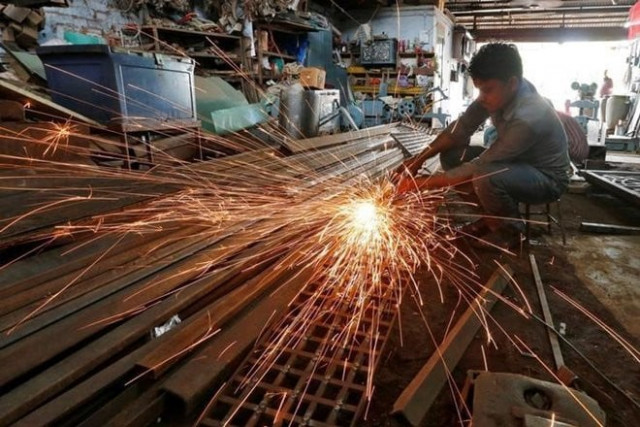SMEs seek tax system revamp
Industry players demand business-friendly policies in upcoming budget

Entrepreneurs have urged the government to revamp the tax system for small and medium enterprises (SMEs) along with adoption of other business-friendly policies.
“Tax policy must be friendly, which means it has to be fair, simple, enabling, facilitating and not threatening,” remarked Union of Small and Medium Enterprises (Unisame) President Zulfikar Thaver while talking to The Express Tribune.
For the levy of income tax, the exemption limit of Rs400,000 was unfair considering the inflation rate, the rupee value and the pandemic, he said, adding that sales tax should be in single digit and turnover tax on SME shopkeepers and units should not be more than 0.25%.
“As the Federal Board of Revenue (FBR) is concerned about the widespread flying invoices, it should withdraw sales tax on export with the rule ‘no sales tax, no refund’,” suggested Mehran Commercial Enterprises Director Export Mashood Ali Khan.
Withholding tax on raw material at the import stage and semi-finished parts was 4%, while on sales it was collected at the rate of 5.5%, he pointed out.
“About 9.5% of the industrialist funds are stuck with the government on every transaction, which is even higher than the expected profit on that transaction. And the government refund takes two to three years. It should be reduced to 1% and refunded online,” Khan proposed.
Read more: NA speaker sees no difficulties in passage of budget
According to the FBR, CNIC would be sufficient and no NTN would be required, said Zeeshan Ally, an income tax consultant. “It has, however, not been implemented thus far,” he added.
Income tax on small companies was 22%, but it should not be more than 15%, Thaver said. “Moreover, income tax on partnerships and associations of people came in at 35%, which is too high; it should not exceed 20%.”
“WHT collection is the duty of the state and not the buyer or seller as the case may be,” he said. “Regarding broadening of tax net, no serious effort has been made,” he lamented.
In order to review suggestions of SMEs, the Ministry of Industries and Production held a meeting, presided over by Industries Minister Khusro Bakhtiar, to discuss income tax, sales tax and matters connected with the FBR.
Thaver said the meeting was held too late as the budget was near and in that short time if stakeholders gave suggestions, the authorities would not be able to incorporate them as the process required some time.
Suggesting some solutions, Khan said that the labour-related taxes collected by organisations such as Employees Old-Age Benefits Institution (EOBI), Sindh Employees Social Security Institution (SESSI), Workers’ Profit Participation Fund and Workers’ Welfare Fund should be clubbed into one tax.
Similarly, professional and property taxes should also be combined into one tax to ensure ease of doing business.



















COMMENTS
Comments are moderated and generally will be posted if they are on-topic and not abusive.
For more information, please see our Comments FAQ